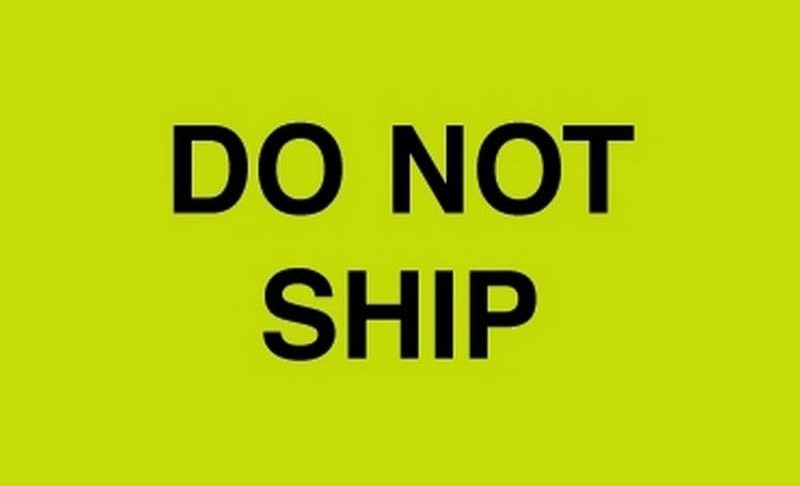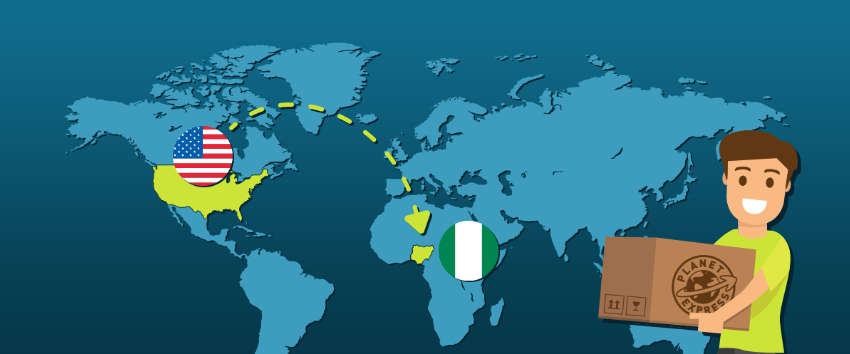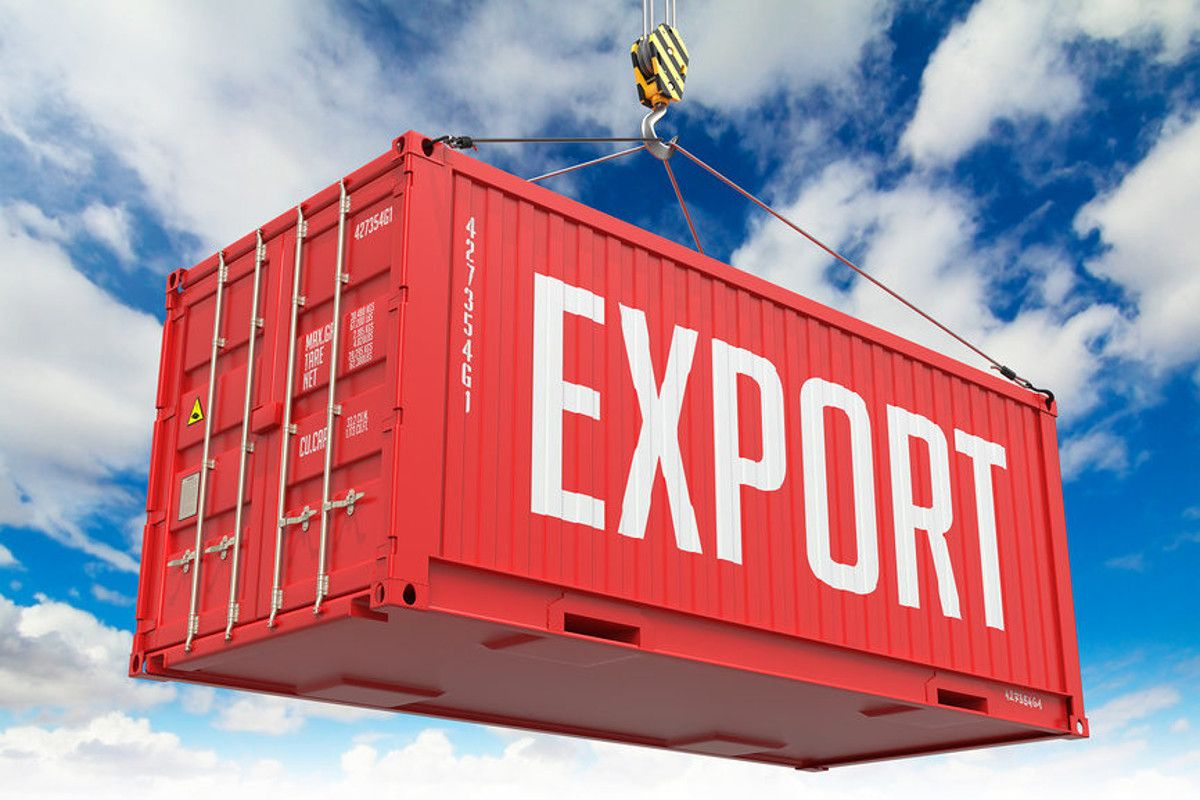International shipping is regulated by certain rules, majorly from the country being shipped to and the country of origin. These regulations are essential to ensure compliance with safety, security, and trade laws. When shipping items from the UK to Nigeria, understanding these rules is not only critical to avoid delays, confiscations, or legal issues but also to ensure a smooth shipping experience.
Nigeria enforces specific import laws that prohibit or restrict certain goods based on public health concerns, cultural considerations, and economic policies. At the same time, there are numerous items that can be legally shipped, provided the correct processes are followed.
In this article, we’ll provide a comprehensive guide covering:
- Prohibited items that cannot be shipped to Nigeria.
- Controlled items and the End User Certificate.
- Practical tips to ensure your shipments arrive safely and in compliance with Nigerian regulations.
Whether you’re shipping personal items or running a business, this guide will help you navigate the complexities of shipping to Nigeria with ease.

Prohibited Items for Import into Nigeria
According to the prohibition list by the Nigerian Customs Service (NCS), prohibited items for import are generally grouped into two categories:
- Home Import Prohibition List: Items that are restricted but may have exceptions or conditions.
- Absolute Import Prohibition List: Items strictly prohibited without exceptions.
Home Import Prohibition List (Restricted Items)
These items are generally not allowed for import, but specific exceptions may apply:
- Poultry and Livestock Products: Includes live or dead birds (e.g., frozen chicken and turkey) and other poultry products.
- Meat Product: Pork and beef are restricted.
- Eggs: All bird eggs, excluding hatching eggs.
- Refined Vegetable Oils and Fats: Products like margarine and palm oil, except certain oils like linseed, castor, or olive oil
- Sweetened or Flavored Sugar Products: Includes cane or beet sugar in retail packs with added flavoring or coloring.
- Cocoa Derivatives: Includes cocoa butter, powder, and cakes used for chocolate and confectionery.
- Packaged Food Items: Spaghetti, noodles, and tomato paste or concentrates in retail packs.
- Beverages: Fruit juices, flavored water, and non-alcoholic beverages like soda (excluding energy drinks such as Power Horse).
- Building Materials: Bagged cement is prohibited.
- Pharmaceuticals: Specific over-the-counter drugs (e.g., paracetamol, aspirin, and chloroquine) and waste pharmaceuticals.
- Fertilizers: Mineral and chemical fertilizers containing nitrogen, phosphorus, and potassium (NPK), except organic fertilizers.
- Used Items: Includes second-hand pneumatic tires, hollow glass bottles, used compressors, air conditioners, fridges, freezers, and vehicles over 12 years old.
- Consumer Products: Soaps, detergents, exercise books, and recharged phone cards in retail packs.
- Carpets and Footwear: Includes carpets, textile floor coverings, and footwear (excluding safety shoes and sportswear).
Absolute Import Prohibition List (Strictly Prohibited Items)
These items are completely banned from importation under all circumstances:
- Weapons and Ammunition: Includes disguised pistols, noxious liquid or gas weapons, and ammunition containing harmful substances.
- Counterfeit and Pirated Items: Fake currency, counterfeit products, and pirated materials like media or software.
- Obscene or Indecent Items: Includes obscene books, prints, paintings, or any morally objectionable material.
- Second-hand Clothing: Used garments and textiles are strictly prohibited.
- Hazardous Materials: Nuclear waste, toxic waste, and substances harmful to health or the environment.
- Cultural or Religious Sensitivities: Items bearing inscriptions likely to offend religious sentiments or disrupt public peace.
- Coins and Cowries: Non-legal tender coins and cowries.
- Prohibited Spirits: Includes certain types of rum, whisky, methylated, and denatured spirits.
- Matches and Beads: White phosphorus matches and flammable celluloid beads.
- Unfit Consumables: Meat, vegetables, or other provisions deemed unfit for human consumption by health officers.
This categorization helps protect public health, support local industries, uphold cultural values, and ensure safety within Nigeria.

End User Certificate for Controlled Items
EUC is the acronym for End User Certificate, the official document for controlled items. The official End User Certificate portal defines the EUC as “an undertaking by a purchaser/importer that any of the controlled items/products covered by the process transferred from the exporting country is for the sole and lawful use within Nigeria, and that the controlled items/products are not destined for transfer or re-export to any other entity or country, without the prior written consent of the issuing authority, the Office of the National Security Adviser”
Controlled items consist of components that have military or national security significance. They include:
- Military hardware
- Cash equipment
- Chemicals
- Remotely piloted aircraft
- Uniforms and accoutrements
- Lawful intercept equipments
- Treated vehicles
- Simulation equipments
- Explosive and explosive devices
- Broadcast equipment
- Fire works
- Arms and ammunitions
- Private security gadgets
- Fertilizers
While these items can be imported, the application process for the End-User Certificate (EUC) ensures that the applicant provides the necessary documentation specifying the intended use of the items. Approval is then granted by the Office of the National Security Adviser (NSA).
READ MORE
Practical Tips to Ensure your Shipments Arrive Safely and in Compliance with Nigerian Regulations.
Importing goods into Nigeria involves a well-structured process to ensure compliance with local regulations and avoid delays. Here are some practical tips for a successful shipment:
- Understand the Import Regulations
Familiarize yourself with the Nigerian Customs Service’s Import Prohibition List to ensure that your goods are not restricted or banned. Verify this early in the planning process to avoid costly mistakes.
- Engage Professional Services
Hire experienced customs agents, legal advisors, or logistics professionals in Nigeria. Their expertise can help you navigate regulatory requirements, complete paperwork, and resolve potential issues effectively.
- Ensure Proper Documentation
Prepare all required documents, such as a valid Tax Identification Number, Form M, and shipping invoices, and ensure they are submitted through Nigeria’s single trade window portal. Incomplete or incorrect documents can cause significant delays.
- Choose a Reliable Shipping Partner
Work with trusted and experienced freight forwarders who are familiar with Nigerian port operations. They can help manage logistics, handle customs clearance, and ensure that your goods are delivered safely.
- Comply with Port and Shipping Guidelines
Adhere to all packaging and labeling standards required by Nigerian authorities. Ensure goods are securely packed to prevent damage during transit or inspection.
- Monitor Your Shipment
Use tracking tools provided by your shipping company to monitor your goods’ progress. Staying updated allows you to address potential issues in real-time.
- Plan for Customs Inspections
Be prepared for inspections at the Nigerian ports. Ensure that all goods match the descriptions provided in your shipping documents, as discrepancies can result in fines or confiscation.
- Establish Communication Channels
Maintain clear and regular communication with your Nigerian representatives, customs agents, and freight forwarders to ensure all processes are aligned and timely.
In this article, we’ve considered prohibited items, controlled items, and the importance of the End-User Certificate (EUC), along with practical tips to ensure your shipments reach Nigeria safely. By adhering to these guidelines, importers can avoid costly mistakes, ensure compliance with Nigerian regulations, and streamline the importation process. Careful planning, proper documentation, and engaging professional support are key steps to achieving successful imports and fostering smooth trade operations. Check link below for more information
- https://euc.nsa.gov.ng/
- https://customs.gov.ng/?page_id=3075
- https://www.trade.gov/country-commercial-guides/nigeria-prohibited-and-restricted-imports








